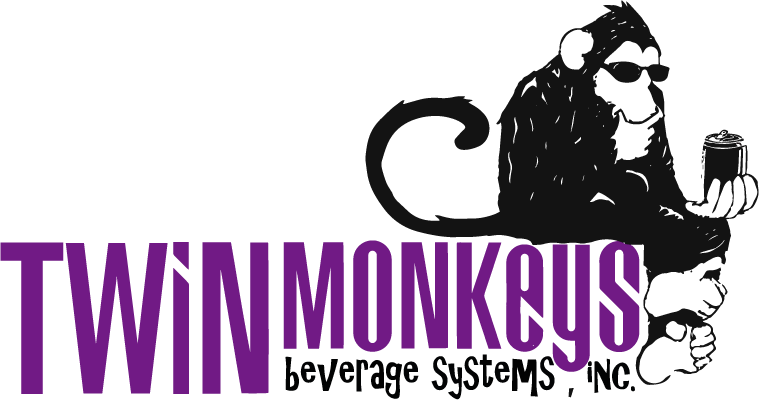Seltzer, in its non-alcoholic form, was already a hugely popular drink. Still, the advent of hard seltzer has been something else entirely. Despite only really coming to the market in 2013, hard seltzer now has an estimated market value of 4.63 billion dollars in the United States alone. Every major brewing company, from Budweiser to White Claw, now seems to have a hard seltzer or a hard seltzer-inspired product line. According to experts, hard seltzer is here to stay. Hence, drinks producers need to think carefully about whether they will enter this market and, if so, how they will set up their seltzer canning operations.
Seltzers vs. Beer: What is the Difference?
In the past several years, health ‘celebrities’ have taken over social media and now represent one of the most potent purchasing influences on consumer behavior. “Seltzers vs. beer: which is more healthy?” has been the title of many posts in this space. When consumers look at the seltzers vs. beer debate, they often try to figure out which is healthier.
Both hard seltzers and beers are fundamentally similar in that they are made from fermenting sugar and adding yeast to create alcohol. However, they differ in their look, taste, and (importantly for many) nutritional makeup.
According to Coldist.com, hard seltzers have about 100 calories and 2 grams of carbohydrates in a 12-ounce can. Compare this to beer, which has about 150 calories and 15 to 30 grams of carbohydrates in a same-sized can. This may be why many people have turned to hard seltzer in the past few years. Like beer, hard seltzers are typically made from only a handful of natural ingredients, which explains why they have taken over from some of the more synthetic offerings.
Another key difference is that hard seltzers are not made with grains. Instead, it is made with fermented cane sugar. This means that hard seltzers are naturally gluten-free, which is another check in the health box for many.
Seltzer Canning vs. Beer Canning
What seltzer and beer canning have in common is that there are specific quality markers any brewer must reach before distribution. The canning line must be clean to minimize contamination risks. It is also imperative that dissolved oxygen is minimized and that a strong seal can be formed, or there is a risk that the beverage will go off.
Choosing a canning machine that meets or exceeds industry standards is always a good idea. Efficient and quality canning speaks for itself regarding customer satisfaction and product shelf life.
As for the canning machines themselves, there are a lot of similarities between beer canning and seltzer canning. What matters is that the device can be tuned for things like pressure, carbonization, seal, and can size. With hard seltzers, for example, can sizes tend to be smaller and slimmer. This requires that the can size be set accordingly on the canning machine and that fill speeds and pressures can be adjusted to account for the smaller size.
The differences come in when different recipes are considered. Flavor preservation in beer canning differs from seltzer canning, but there are no hard and fast rules here. Everything depends on the recipe, ingredients, and methods used. It is the machines that are tuned accordingly.
Seltzer Canning Equipment Requirements
To effectively run a seltzer canning production line, breweries need several items. Here are the core requirements:
- Cans: An obvious one, perhaps, but remember that seltzer cans typically are different from beer cans. Usually, they are taller and slimmer than the average 12 oz beer can, making them quite distinctive on the shelf compared to other beverage types. With consumers having so many options in the liquor store, it’s essential to bear in mind shelf appeal and noticeability when procuring materials for a seltzer production run.
- Lids: Lids may be provided by the supplier or ordered separately. One rationale for ordering them separately is that breweries can obtain different types of lid or bespoke puller designs from specific suppliers.
- Canning machines: Choosing whether to brew on their own canning line or a mobile canning machine is a top concern for breweries. But once the decision is made, it’s usually all hands on deck to make the most of the production time frame. Note that specialist canning machines can ensure higher quality output for one type of product. Still, they often lay dormant when breweries switch to another production run. Multi-beverage machines may, therefore, be more appropriate for certain operations.
- Packaging: Once the product is made, the focus shifts to ensuring it reaches its destination safely and in an attractive manner. Labels, boxes, wraps, and stickers are all things to consider when designing the whole product experience.
Sourcing Quality Seltzer Canning Equipment and Mobile Canning Machines
Twin Monkeys is a leading supplier of seltzer canning equipment, including mobile canning machines. We proudly produce the finest American-made canning equipment designed to fit the needs of beverage makers of all sizes. For help in choosing the right type of seltzer canning equipment for your intended production, get in touch with the experts at Twin Monkeys today.
